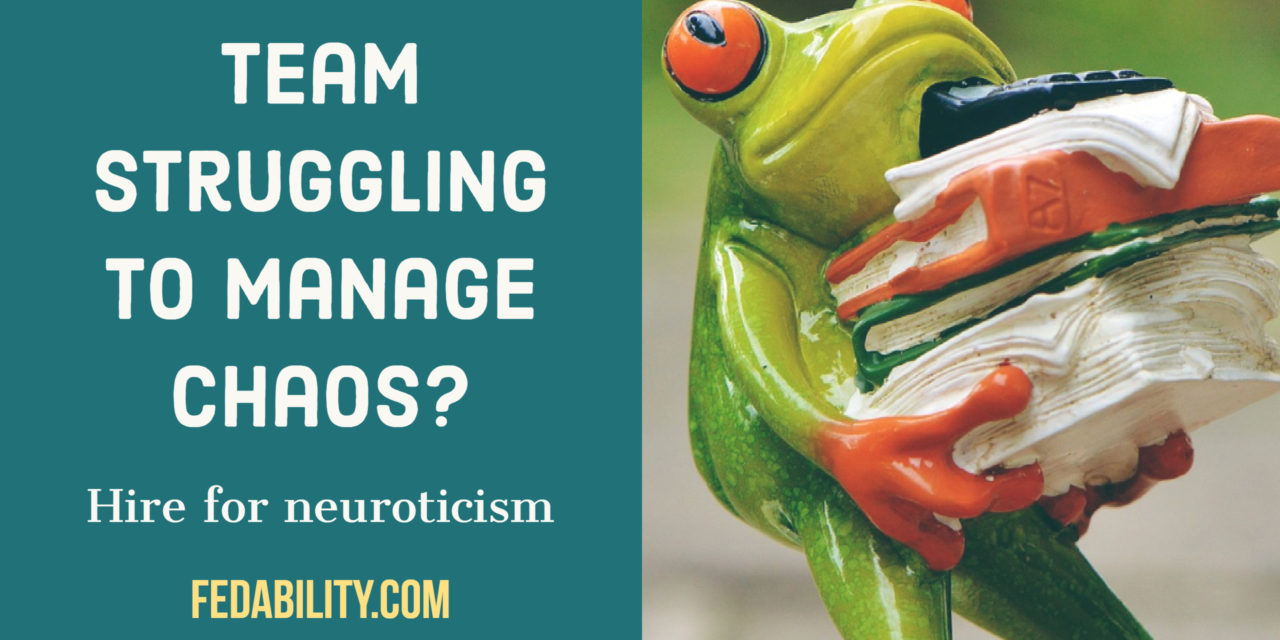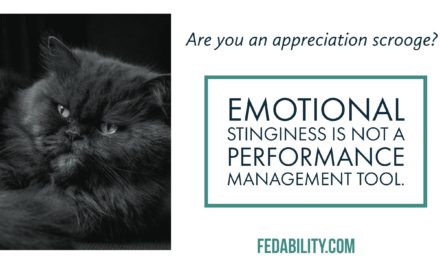You’ve gotten the third email this morning from a team member that they’ll be running late this morning. Two more emails will arrive in the next hour of team members calling in sick. Is there something going on? A wreck holding up traffic? A bug getting around? Maybe. Or, maybe it’s the usual signs that your team is starting to burn out from the stress of the job. Perhaps these are coping mechanisms to help them manage chaos.
It isn’t unusual for a manager to realize their team is struggling and then search for ways to bolster the team’s resilience. But, to be truly effective, the manager has to start earlier. And, I don’t mean in the early stages of observing stress responses like work quality going down, crankiness/irritability, and even turnover. I mean, in the very beginning. You need to help your team manage chaos before they even start. During the hiring and selection process.
As a manager, you might wonder if it is possible to identify candidates that are better prepared to manage chaos.
The answer is: you can ask questions that will provide insight into how they handled stress in the past.
A manager described a new hire who quit within the first 72 hours of starting the job. Reflecting back, the manager realized the new hire had worked in very stable industries previously. During their interview, the candidate had described working in very controllable environments. She wondered if that had set the new hire up for failure in their new work environment.
It got me to thinking about some of the psychology literature about personality. One of the 5 personality traits is ‘neuroticism.’ Behaviorally, neuroticism is someone who often shows signs of moodiness, anxiety, anger, depression, and frustration. It seems obvious that hiring managers would want to avoid this personality trait and select those who scored low in it. (assuming we could use personality tests in government selection, which we can’t)
However, there’s research to suggest that using this personality trait as a primary selection tool typically resulted in ethnic and gender discrimination.
As a result, any good Industrial Organizational psychologist (like myself) would not normally recommend using a measure of neuroticism for selection.
But I got to wondering if we actually SHOULD seek out some neuroticism in candidates. As I mentioned, those who score high on the measure have typically grown up in chaotic environments.
Who, then, would be better to work in your unstable and chaotic environment than someone who grew up in it and managed to persevere to become successful in their career? Someone who has had to learn to manage chaos in other unstable environments!
I should caveat this with saying there’s a healthy and unhealthy neuroticism.
Healthy neurotics are ones that have learned to channel their anxiety into becoming more effective. They are more prepared and better able to deal with change and uncertainty. Also, those who suffer from managed depression have been found to be better leaders in chaotic situations because they tend to be more realistic than optimistic.
So, how does one identify healthy neurotics in a government environment when personality tests are not allowed?
You include behavioral interview questions that will target examples of if the candidate has worked in a chaotic environment previously. And, whether they effectively managed that chaos in a healthy way. Keeping in mind, you’ll need to be able to demonstrate the interview questions must tie clearly and directly to the job in question
Here’s some example behavioral interview questions that can provide indications that your candidate can manage chaos.
- Describe a time you were really stressed out at work. What did you do? What was the outcome?
- Tell me about a time you were asked to perform a task that was outside of your comfort zone. What about it was outside of your comfort zone? How did you accomplish the task?
- Please provide an example of where your idea was not accepted by your stakeholders. How did you respond to the rejection?
- How do you handle multiple competing priorities when there’s not enough time to successfully complete all of them?
- Describe a time when you had to interact with an angry customer or stakeholder. How did you handle the situation? What was the outcome?
By including some of these questions, you will hear indications of whether the candidate is used to having to manage chaos. And, whether they’ve developed coping mechanisms to deal with unexpected and frustrating situations.
Assuming that they are technically competent (Otherwise, why are you interviewing them? Have you read our suggestion to use mini-interviews to screen on technical competence?), you’re more likely to select someone who is more resilient and has more grit.
If you have other behavioral interview questions you use when interviewing, please share them in the comments below.
If you’re preparing for a job interview download our free Interviewing guide. It offers guidance for how to effectively responding to behavioral interview questions.





